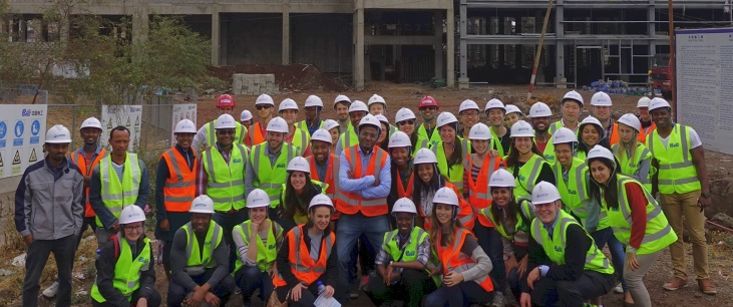Yes! In January of 2015, 40 students and I compared infrastructure finance and urban systems in Lima, Peru and in Buenos Aires, Argentina. In January of 2016, 40 students and I looked at the potential for private finance of public infrastructure in Addis Ababa, Ethiopia and Dar es Salaam, Tanzania. This coming January, I’ll return to Addis and Dar with another group of students to build on last year’s work.
WHAT INTERESTS YOU MOST ABOUT THE BUSINESS OF INFRASTRUCTURE IN AFRICA?
I’m interested in the potential for the private finance and delivery of public infrastructure like roads, power, water, sanitation, and communications. These nations know they need the capital and the expertise and they want to invite it in…but they have had unfortunate experiences in the past with bad private actors and don’t want to be taken advantage of.
Africa and the rest of the world are experiencing rapid and massive urbanization as tens of millions of people move to cities to seek opportunity. At the same time there are existing and worsening shortages of basic resources like clean water, clean air, energy, and food -- and also too much traffic and too much garbage. Governments all over the world are evidently unable to address these infrastructure issues, either through lack of capital or because of a lack of consensus. The “infrastructure conundrum” is that there also are trillions of dollars of institutional capital in the global financial system earning almost zero percent return. How can we create and implement innovations in energy, transit, water & sanitation, and other sectors? This is exciting, interesting, high leverage, and worthy of study.
WHAT EXCITES YOU MOST ABOUT TRAVELING AND LEARNING WITH MBA STUDENTS?
Seeing through their eyes. These are elite individuals with huge skills of observation and synthesis. I like having a little window into what they see and how they are processing it, whether we meet casually in the hotel lobby at the end of a good day or more formally in the presentations.
I also like to be part of the bonds that have formed in these cohorts. Students have opted in to travel at this time of year, they have opted in to study this topic, they have opted in to learn about this continent. That’s a lot of alignment -- even when their individual backgrounds and talents are very different. It’s an intense joy to learn with them.
WHAT IS ONE THING YOU CAN’T TRAVEL WITHOUT?
Two things. First, I stock up on Starbucks “Via” instant coffee. It takes caffeine to manage jet lag, and who knows what you will find in the hotel. Second, headphones so I can listen to music in the middle of the night while fighting time changes & caffeine imbalances (see above).
IF YOU HAD TO CHOOSE THREE WORDS TO DESCRIBE YOU AS A TRAVELER, WHAT WOULD THEY BE?
Inquisitive. Enthusiastic. Dirty and dusty, usually.
DO YOU HAVE ANY ADVICE FOR YOUR IFC STUDENTS THIS YEAR?
At a high level, they should remember that these are very poor countries. Urban systems are not what we are used to in the west, and the poverty can be glaring and disturbing. This is what we are trying to help address, using the tools of business and finance. At a more tactical level, students can benefit by learning ahead of time a little bit about Africa, about infrastructure, and about public-private partnerships in the developed world. And at the personal level, they should try to travel elsewhere in Africa before we meet in Ethiopia on January 8th!

